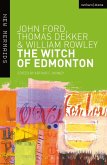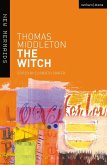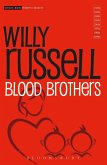It is a historical phenomenon that while thousands of women were being
burnt as witches in early modern Europe, the English - although there
were a few celebrated trials and executions, one of which the play
dramatises - were not widely infected by the witch-craze. The stage
seems to have provided an outlet for anxieties about witchcraft, as
well as an opportunity for public analysis. The Witch of Edmonton
(1621) manifests this fundamentally reasonable attitude, with Dekker
insisting on justice for the poor and oppressed, Ford providing
psychological character studies, and Rowley the clowning. The village
community of Edmonton feels threatened by two misfits, Old Mother
Sawyer, who has turned to the devil to aid her against her unfeeling
neighbours, and Frank, who refuses to marry the woman of his father's
choice and ends up murdering her. This edition shows how the play
generates sympathy for both and how contemporaries would have responded
to its presentation of village life and witchcraft.
burnt as witches in early modern Europe, the English - although there
were a few celebrated trials and executions, one of which the play
dramatises - were not widely infected by the witch-craze. The stage
seems to have provided an outlet for anxieties about witchcraft, as
well as an opportunity for public analysis. The Witch of Edmonton
(1621) manifests this fundamentally reasonable attitude, with Dekker
insisting on justice for the poor and oppressed, Ford providing
psychological character studies, and Rowley the clowning. The village
community of Edmonton feels threatened by two misfits, Old Mother
Sawyer, who has turned to the devil to aid her against her unfeeling
neighbours, and Frank, who refuses to marry the woman of his father's
choice and ends up murdering her. This edition shows how the play
generates sympathy for both and how contemporaries would have responded
to its presentation of village life and witchcraft.









